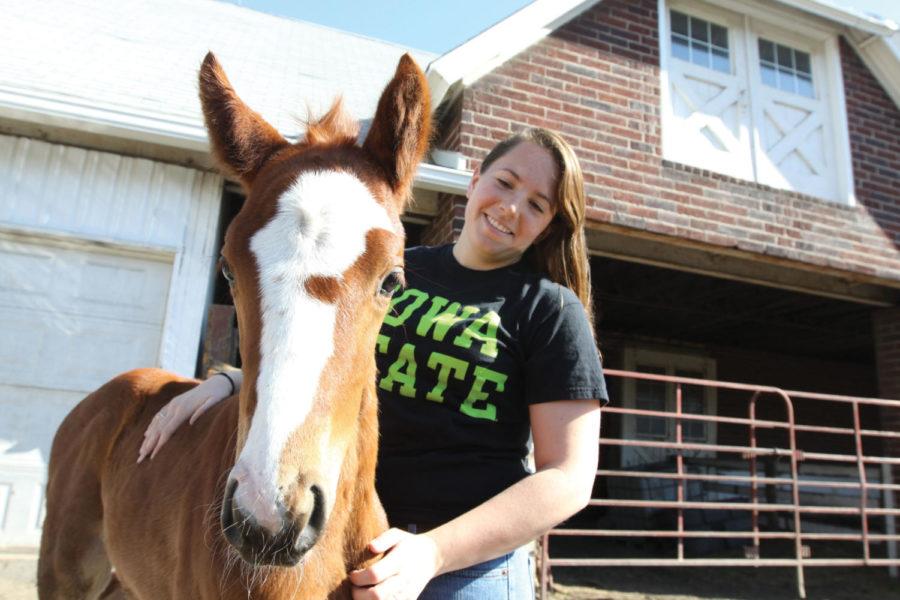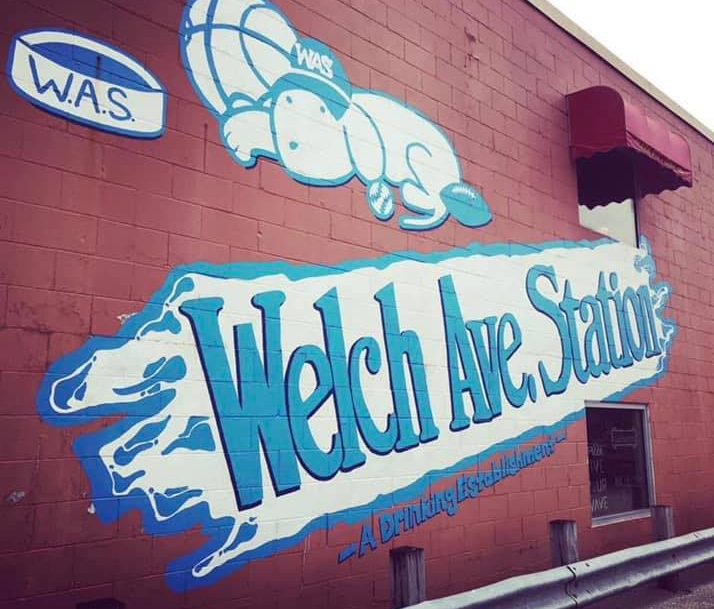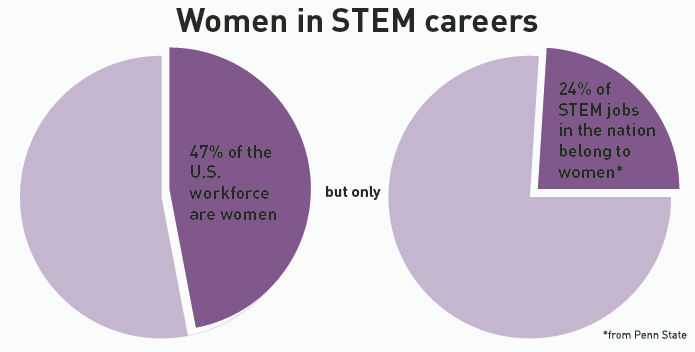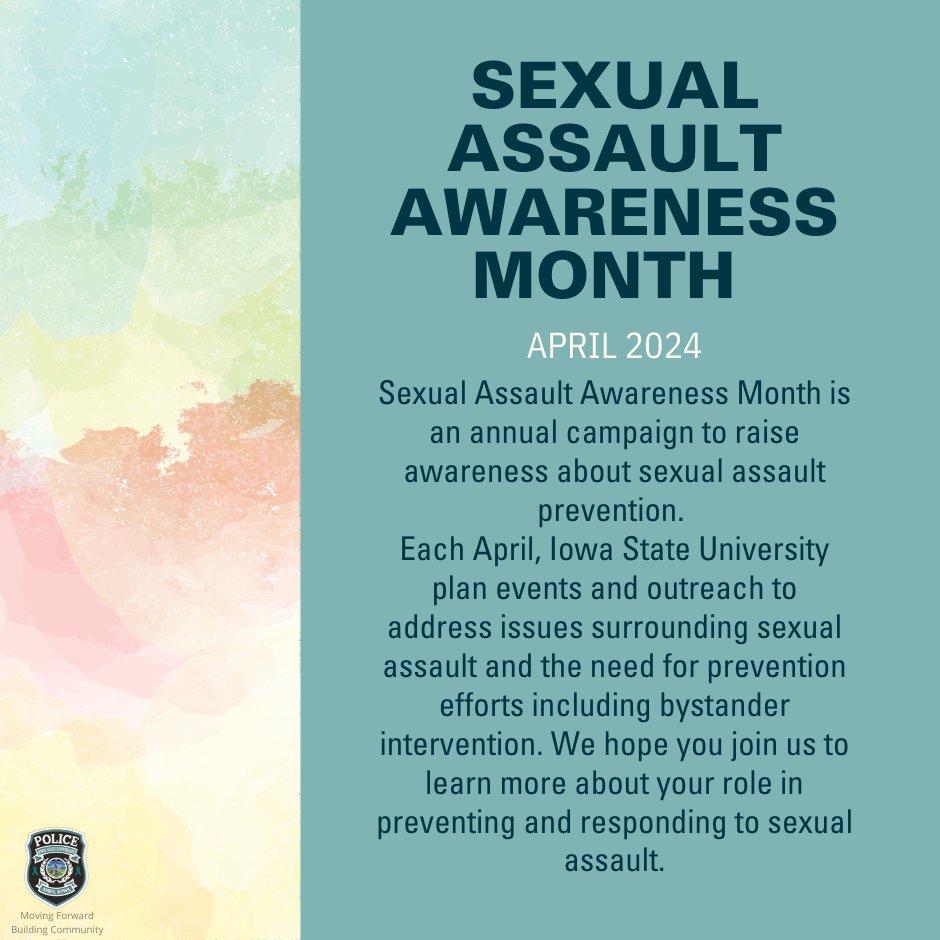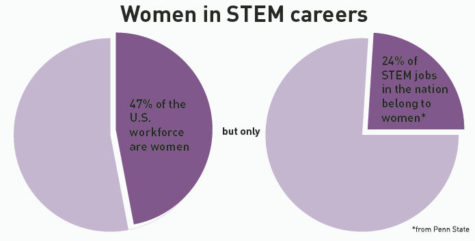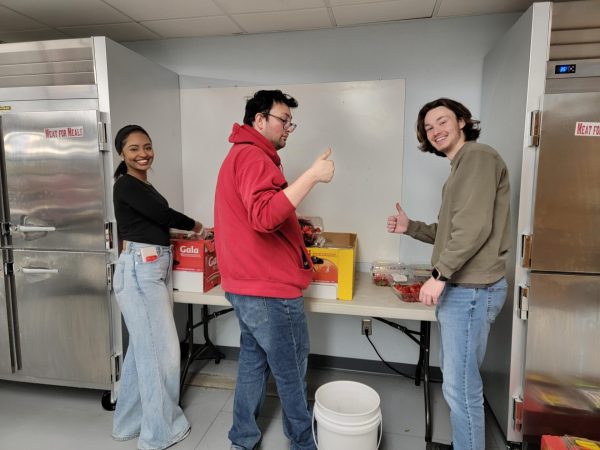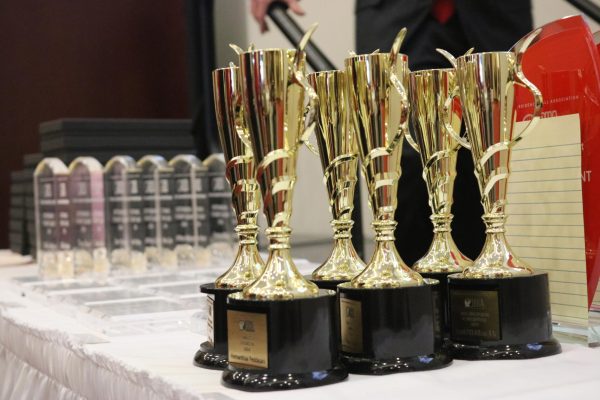Students, staff raise foals at Equine Farm
Photo: Huiling Wu/Iowa State Daily
Anna Kinney, junior in animal science, is employed by the ISU Horse Barn to take care of newborn foals. Her duties include feeding horses, cleaning stalls and checking the horses to see if they are healthy.
April 24, 2012
Over the past couple months, students and employees have been helping welcome new foals to the Equine Farm on campus.
Both employees at the horse barn and students taking the Animal Science 417 class are involved in the foaling process.
“I’m employed at the Horse Farm and work there Mondays, Wednesdays and Fridays, as well as usually one weekend a month,” said Heather Smith, senior in animal science.
The responsibilities of employees of the farm are both general maintenance and horse care.
“As an employee, we have to feed the horses, clean stalls, check the horses to make sure they’re healthy and if there are any major cuts or bruises, we report them to Codi [Burris],” Smith said.
Burris is the manager of the Equine Farm and also teaches the 417 class.
At the beginning of the year, the students have a lecture twice a week to learn about the basics of mare and stallion care, complications that could arise during the process and other important information they may need to know.
The responsibilities at the farm for the students taking the class start in the middle to end of January.
“We start with pretreatment of the mares, like vaccinating them and weighing them periodically,” said Anna Kinney, junior in animal science.
The students also have to stay the night in the barn, watching the cameras to make sure that there are no complications during the birth.
“Somebody has to be there from 8 p.m. to 6 a.m., and it’s kind of up to us to figure out who is staying and when. Usually there are three to four girls at a time,” Kinney said.
Even with foaling season in swing, Kinney said they try to have lecture every now and then.
“March was busy because that’s when the majority of the foaling took place,” she said.
With the class helping out with the foaling, the employees do not have to work very many overtime shifts.
“I don’t tend to have to work there much more during this time as an employee,” Smith said.
This year, Kinney has been there for 18 of the 26 births.
After the foaling takes place, the class stays to make sure the babies nurse and do annual checkups on them after that.
The babies are for sale and can be bought at any age, though they are typically weaned between 5 and 7 months.
“If they’re not sold by the time they are a year old, we take them to the sales,” Kinney said.
Even though it is sad to see the yearlings go, Kinney said it is great to see them go off to their future.
“It’s really amazing getting to be there to see them born, and then helping out with them and getting to watch them grow up,” Kinney said.
It is a rewarding experience for employees of the farm as well.
“My favorite part is being with the horses. You get attached to your favorite mare and foal,” Smith said. “I didn’t grow up on a farm, but I’ve always loved horses, and it’s almost like you get to adopt them because you see your favorite one every day and get to take care of it.”

